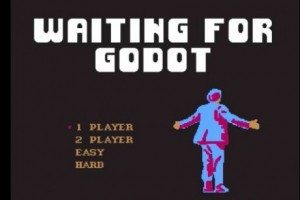* This is a guest post from Bryan Tookey, UK MD of social media monitoring company Brandwatch who also tweets here
 What do you get when you cross classic strategy frameworks with a start-up? Paralysing indecision. This rather depressing conclusion came to me two years into my role as the COO of our company, a start-up that has been booming in the social media monitoring sector.
What do you get when you cross classic strategy frameworks with a start-up? Paralysing indecision. This rather depressing conclusion came to me two years into my role as the COO of our company, a start-up that has been booming in the social media monitoring sector.
I was confident I could help frame and direct the company’s strategy, having spent six years as a strategic consultant at McKinsey and then four years with strategically minded jobs at Google and Ask.com (two companies with very different strategic needs).
Not only did I know all the strategic frameworks, but in my time as a consultant I had built up the almost unshakeable confidence that I could solve a problem quicker than anyone else.
This wasn’t just about our company. These type of strategic dilemmas are faced by most start-ups that have found themselves among the market-leaders in a high growth sector:
– Should you target a specific industry/company size or go all out?
– Should you offer people-intensive consulting services or just sell the company’s application and let them get on with it?
– Should your company work on launching a complementary product in an adjacent sector or ‘stick to your knitting’?
– Should your company expand internationally?
– Should you build an outbound sales team, or use marketing to lead your sales?
But here’s the difficulty. For every answer the classic strategy tools pointed to we had some strong data to suggest the opposite was true.
Let’s take international expansion and specifically our expansion into Brazil. Classic frameworks (such as VRI and Porter’s 5 forces) point out the expansion should work out but practical considerations suggest it could be too hard.
Hearing the pros and cons is like having to listen to two argumentative mates in the pub:
Jonny Frameworks (JF): Your company already has a lot of clients there already and a good and emerging reputation.
Practical Pete (PP): We’ll have to convert our online tool into Portuguese and multiple UIs will slow down future development.
JF: We have to cross the UI-bridge sometime and the competition is less intense in Brazil.
PP: But setting up in Brazil takes time and effort and we are resource-constrained.
JF: We could partner out there and save the set-up costs.
PP: But partnering also takes time and effort.
JF: We can hire someone to manage the partnership.
PP: But we have lots of other priority hires.
JF: But the ROI should…
Oh just SHUT UP! the pair of you.
The pattern was repeated for each of the strategic problems. Not to be entirely defeated, I decided to seek help, after all I couldn’t dedicate enough time to the problem as the day-to-day stuff was too time-consuming. I could not afford a Bain/BCG/McKinsey team to help me, so I decided to cheat.
I convinced the London Business School to use our company as a case study as part of the strategy module for the Sloan Masters course. The Sloan programme is impressive: more than 50 top-quality executives from all walks of life mostly self-funding their way through the well-structured Masters to hone their business skills.
But even here, the wisdom of (wise) crowds couldn’t crack it. Ten groups (with five people in each group) produced nine different answers to the questions. To be fair they lacked a lot of internal data that could have helped them reach a consensus, but, frighteningly, each of the reports made eminent sense when read on its own.
So what’s the solution? Well it turns out it isn’t to hire an ex-McKinsey strategy bod (I vote we send him to Brazil). Instead, we’ve put our faith in the original vision of the company, it is what attracted us in the first place and what has driven our considerable success to date.
So we ARE going to stick to our knitting and provide our customers with top quality social media data, excellent support and more automated tools to uncover insights, and we’re going to sell it to everyone (there’s more, but it is understandably under wraps for now).
And even if this does not turn out to be the perfect strategy, I agree with Jessica Spungin, the Strategy Lecturer for the Sloan Course, when she said, ‘an OK strategy executed brilliantly beats a perfect strategy started too late’.
